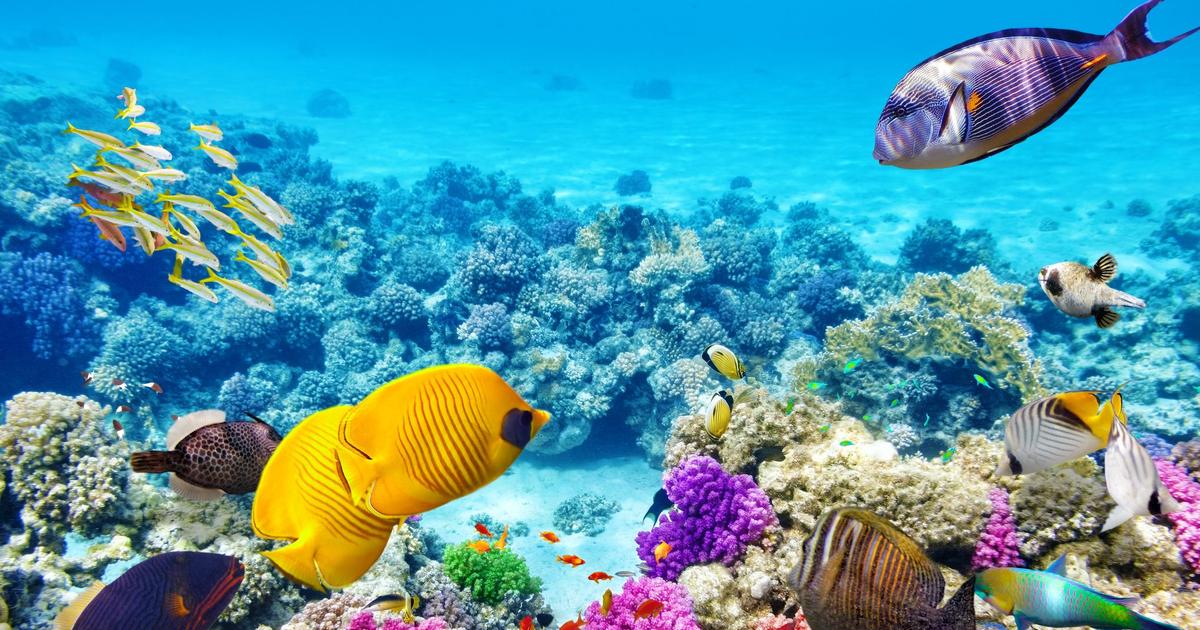The maritime world is like its oceans: vast, mysterious and often surprising.
Many are the treasures it conceals, as much for its fauna and flora as for its vessels, its navigators, their adventures and their techniques.
The marine universe has an infinity of intimate riches, as Baudelaire likes to call them.
Cyril Hofstein invites children aged 7 to 77 to dive into his Cahier de vacances de la mer. "Navigation, physics-chemistry, history or even economics", the author offers "immediate immersion in an ocean of maritime culture" for answer the thousand and one questions that plague budding sailors.
Loud creatures in the depths
"Sea" and "ocean": which word to choose?
Cyril Hofstein makes a good difference between the two words that we may be tempted to confuse.
To support this sometimes complex nuance, the author went directly to seek his sources in the dictionary by defining the sea as a “vast expanse of salt water which covers a large part of the surface of the globe”.
As for the Ocean, he explains that it is all of these seas, divided into five zones: the Pacific, Atlantic, Arctic, Antarctic and Indian Ocean.
” READ ALSO – Only a lover of the sea will have a 10/10 on this test on the words of the beach
Do you now know what the Alpheus heterochaelisi is, the loudest sea animal of the depths?
The beast “can disrupt underwater communications and complicate the acoustic detection of submersibles and ships.
Four to five centimeters tall, this monster is none other… than a shrimp.
That's right, also called the "clapper shrimp", the crackle of its large claw is enough to impress the biggest predators.
Do you know what La Bora, l'Aquilon or le Zéphyr are?
Wind, wind, wind.
The trade winds are “regular and permanent winds from the intertropical regions”, informs the author who adds that they played a major role in commercial exchanges in the 19th century.
Or how to combine the learning of science and history.
Conquering the Ocean
In this holiday book we also learn the names of the different fishing boats which will now be easy to recognize thanks to the small diagrams of the illustrator Gab who does not fail to add a touch of humor to each of his small drawings.
Do you know how to differentiate the caseyeur from the trawler, the handliners from the longliners?
Do you know what it means to “make chapel”?
And do you know the nicknames the lighthouse keepers used to give?
Those on the high seas were called the "hells", those placed on an island were the "purgatories" while the "paradises" qualified the lighthouses installed on the continent.
What to get an idea of how the work of these watchmen was perceived...
In the form of a quiz, we learn the origin of the word sweater.
Does the name of the "nautical sweater par excellence" come from the Candlemas festival, from the deformation of chain mail, from the word candle?
None of this, "the word sweater is a contraction of "garlic merchant" which ended up giving its name to the thick woolen sweater worn in winter by Breton market gardeners who sold their garlic on the markets".
To crown the vast learning of this marine knowledge, Hofstein offers some poems by Baudelaire, Verlaine and Hugo to learn by heart to perfect your literary and oceanic culture!







